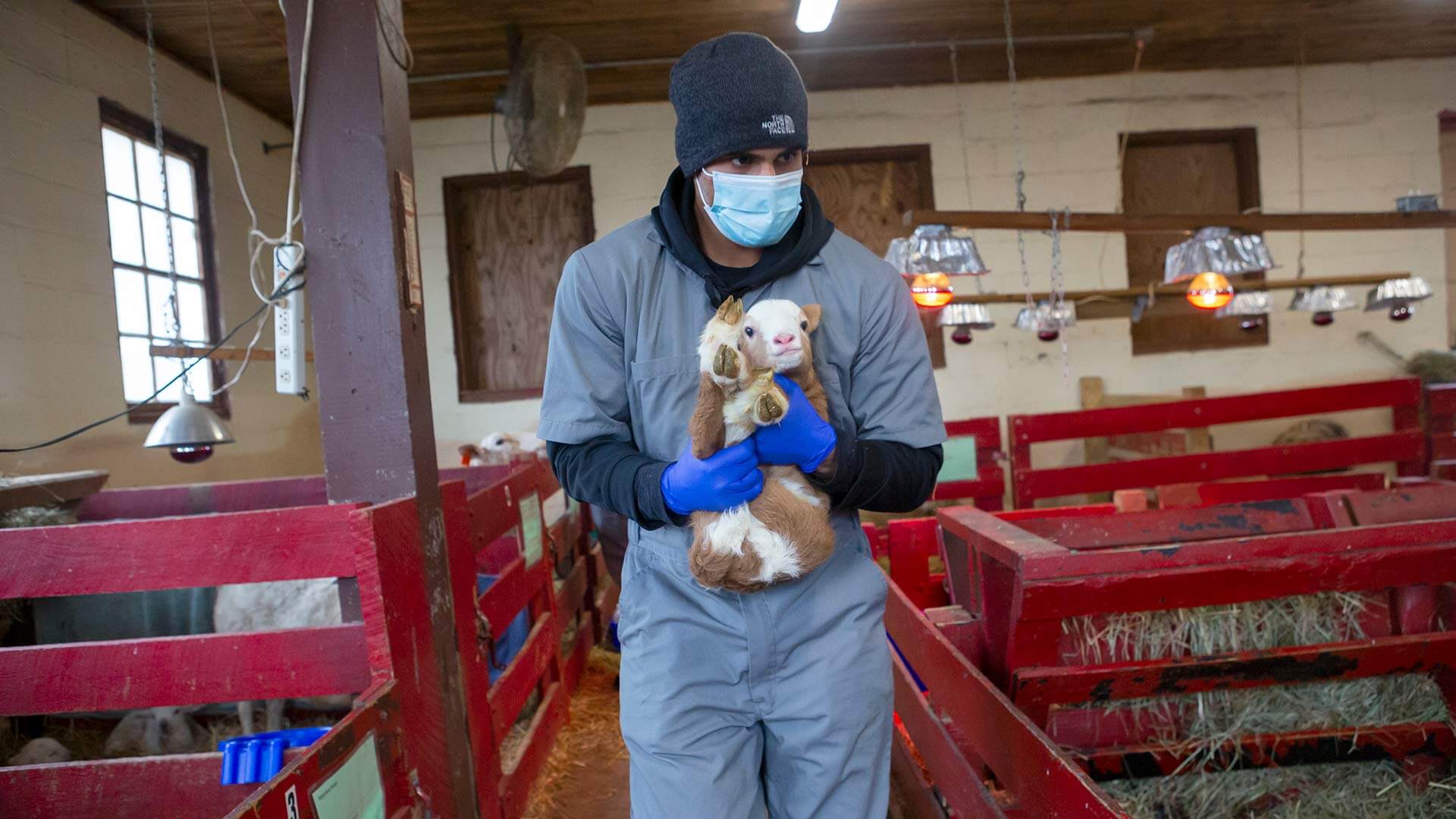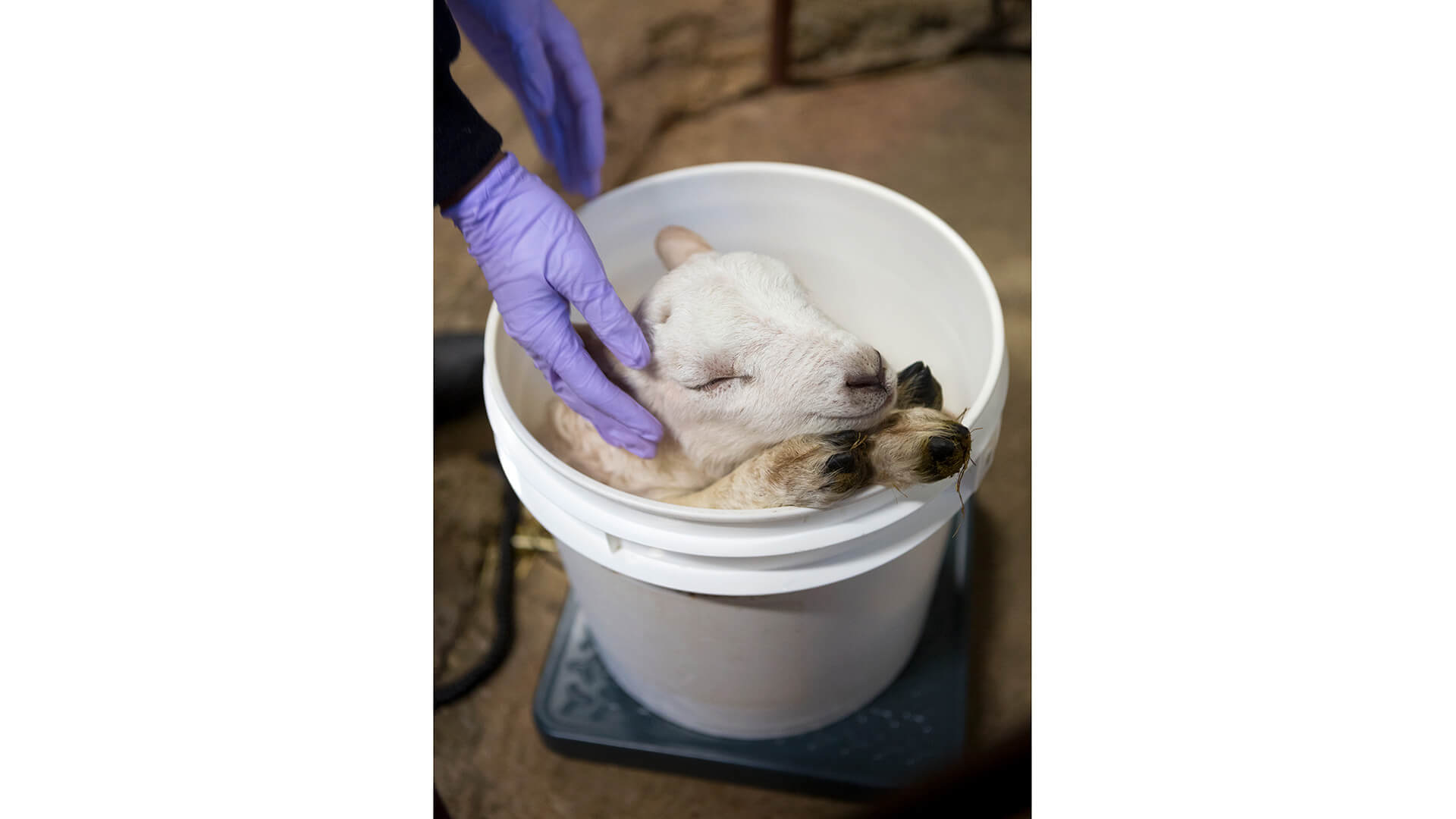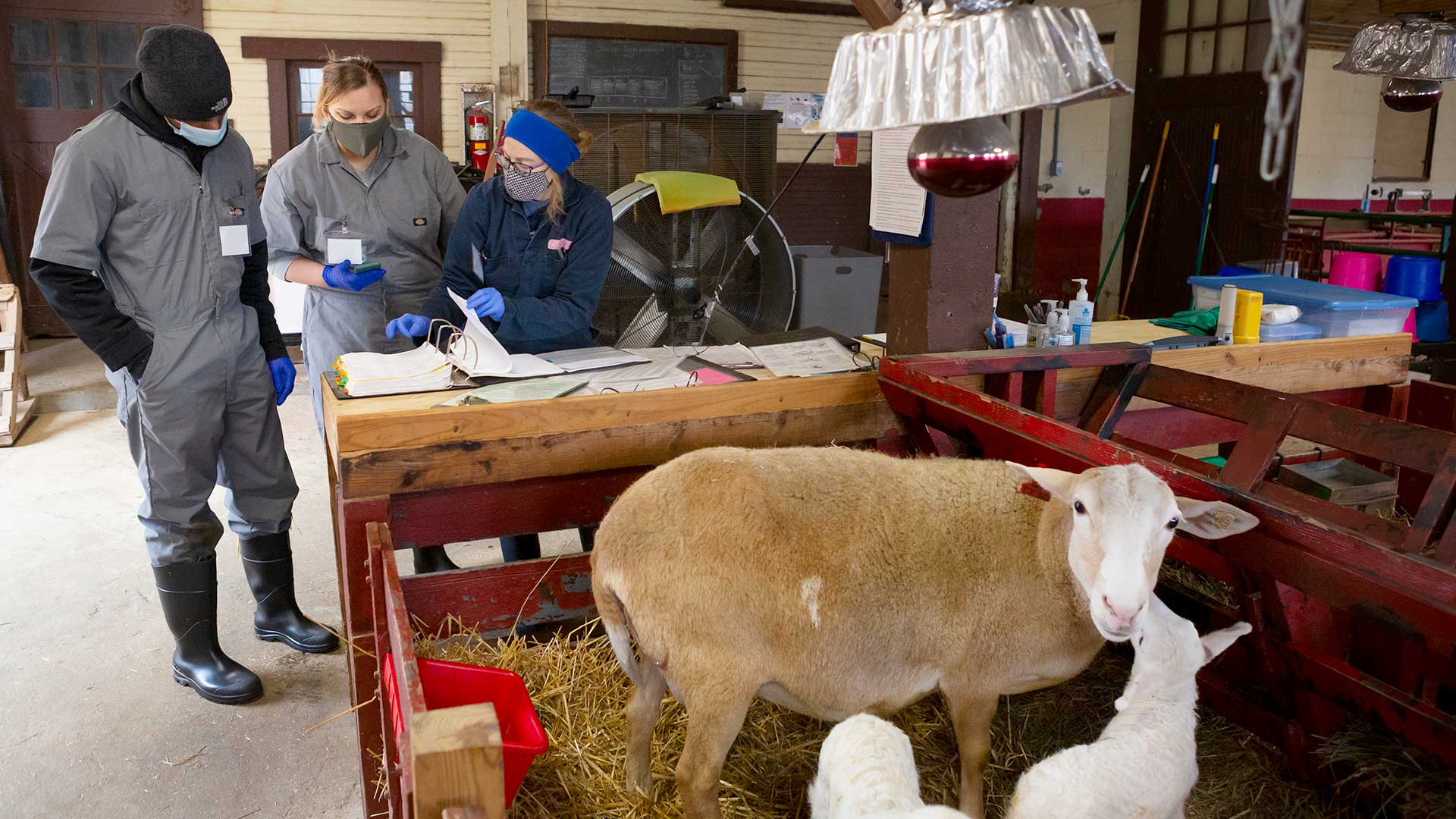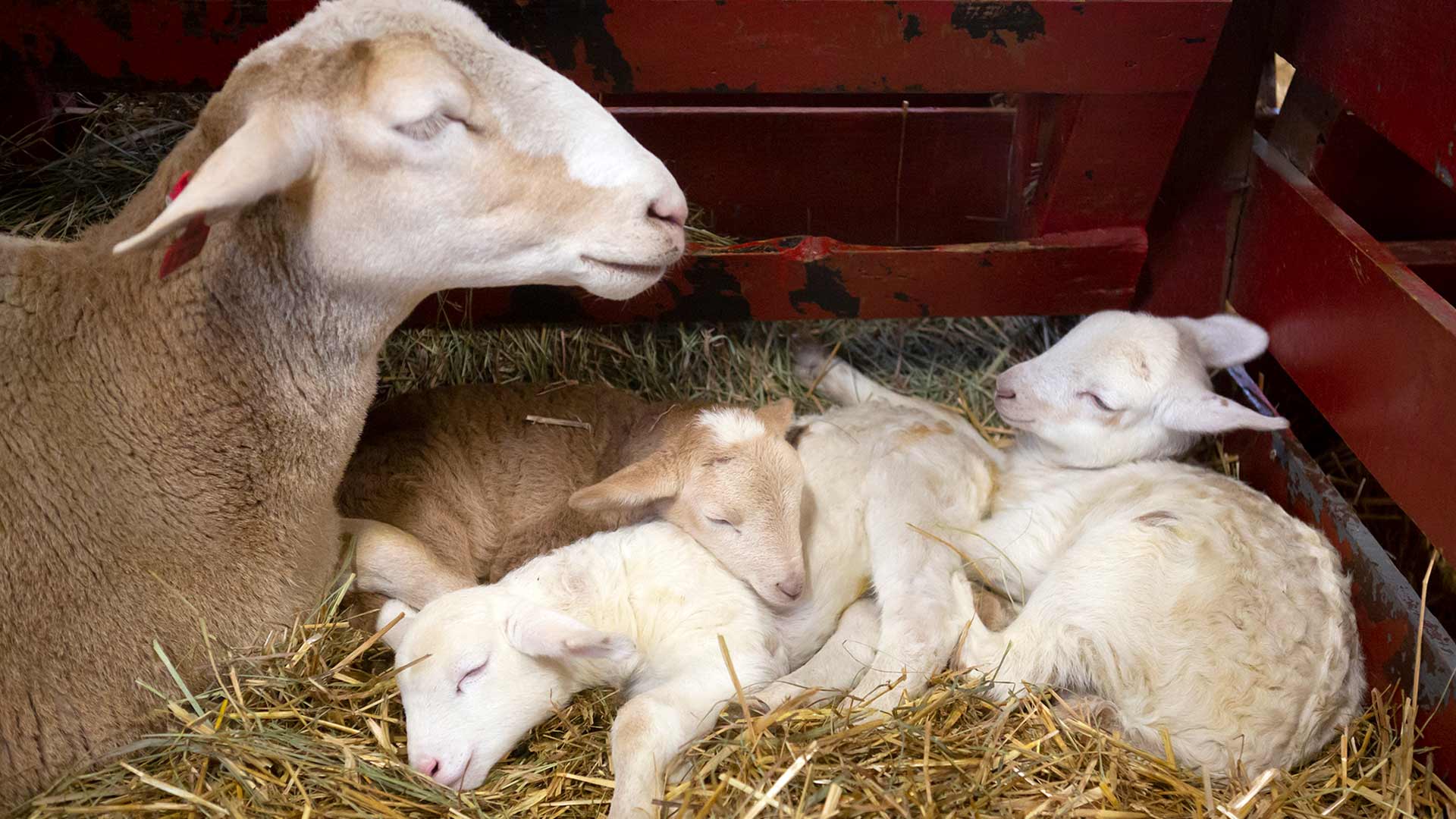- February 26, 2021
- By Annie Krakower
Like any anxious relative awaiting newborn news, as soon as Avital Saletsky’s phone rang early Saturday morning, she dashed out the door of her Oakland Hall room. But instead of the hospital, she hightailed it straight to the Campus Farm, where the baby in question was utterly ovine.
Saletsky ’22 is one of 20 Terps taking the hybrid “Sheep Management,” an animal science class that features the popular “Lamb Watch” experience. Pairs of student “shepherds,” each assigned a pregnant ewe, bring the information they learn in virtual lectures to the barn, where—with COVID safety protocols in place—they help the sheep give birth to baaing bundles of joy, with 26 born this month.
“That was part of my decision of coming (to UMD), just having the Campus Farm and being able to participate in a class like that,” said Saletsky, whose ewe, Pegasus, had the last lamb of the semester.
The course, which began in the late ‘90s as a way for students to get hands-on experience at the farm, is now taught by Principal Lecturer Sarah Balcom, who handles the classroom component, and Campus Farm Manager Crystal Caldwell, who oversees the lamb watches and labs. While the class typically matches 32 Terps to 16 ewes, those numbers were cut to 20 and 10, respectively, this semester to make physical distancing easier amid COVID.
“We’ve had to give some real thought about the space,” Balcom said. “What can we do outside? How many doors can we open? How far can we keep them spaced, but still let them get a useful experience?”
Besides distancing, safety measures have included wearing masks and gloves and lots of handwashing—to prevent spreading diseases among the sheep, “we’ve been handwashing and sanitizing long before COVID … I jump up and down and sing about it in class,” Balcom said. Nightly lamb watches were also switched from one four-person shift to two two-person ones. From 9-10:15 p.m. and then from 10:45 p.m. to midnight (or however long is needed on a particular night), student teams feed the ewes, refill their water tins, give them fresh bedding, clean and do chores, and check for any early signs of labor. The late hours help ensure proper nutrition and care during final stages of gestation.
Caldwell points a camera at the suspicious sheep’s pens so she can monitor them from home—kind of like the National Zoo’s Panda Cam—and if “anything gets exciting,” she said, it’s all systems go.
“(Students) very well may get a text that says, ‘Your ewe didn’t eat grain.’ And that’s a sign that … she’s either feeling sick or she’s going to have a baby—or three,” she said. “So then they come and help me with the newborn processing, which is a lot of waiting and waiting and waiting for everybody to be born and for the mom and lambs to bond.”
The process, which can take hours, involves drying and weighing the lambs, dipping their umbilical cords and feet in iodine to prevent bacterial infections, keeping them warm, making sure they’re suckling and, of course, naming the newborns. (Favorite past monikers include the Hogwarts-inspired Harry, Ron and Hermione, and triplets named Snap, Crackle and Pop.)
With all of this semester’s lambs now born, students will continue the course with sheep management labs and physical exams—which, due to the recent enhanced COVID safety measures, the farm crew is handling until in-person instruction resumes. Along the way, shepherds are keeping journals to document their experiences.
“It’s one thing to sit in a classroom and read about how things should be done, but it’s quite another thing to have to go try it,” Balcom said. “It’s not always neat and tidy—nothing in life is.”
 Student Niraj Suresh carries one ewe Heart’s offspring to be weighed during a physical exam at the Campus Farm.
Student Niraj Suresh carries one ewe Heart’s offspring to be weighed during a physical exam at the Campus Farm.
 Student Tatiana Ferebee places a newborn lamb in a bucket for weighing.
Student Tatiana Ferebee places a newborn lamb in a bucket for weighing.
 Caldwell, right, shows students Rachel Butler, center, and Suresh, left, how to log information on their ewes.
Caldwell, right, shows students Rachel Butler, center, and Suresh, left, how to log information on their ewes.
 Ewe Gucci watches over her triplets as they doze.
Ewe Gucci watches over her triplets as they doze.
